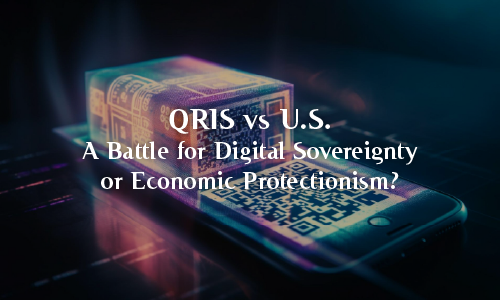
Summary: The dispute between Indonesia and the United States regarding the implementation of the Quick Response Code Indonesian Standard (QRIS) underscores significant implications for Indonesia's digital payment sovereignty and its bilateral trade relations. QRIS, established by Bank Indonesia in 2019 as a unified QR code standard, has been identified by the United States Trade Representative (USTR) as a potential trade barrier, allegedly limiting market access for foreign payment networks like Visa and Mastercard. The U.S. contends that the policy was developed without sufficient international consultation, potentially obstructing global payment interoperability. This paper analyzes the strategic approaches that Indonesia can adopt to address the QRIS dispute, emphasizing the importance of bilateral negotiations, technical consultations, regulatory adjustments, regional alliances, and ASEAN integration. It also examines the broader implications for Indonesia’s digital payment sovereignty, focusing on economic resilience, regulatory autonomy, and regional fintech leadership. By adopting a balanced strategy that reinforces national control over payment systems while maintaining openness to foreign participation, Indonesia can effectively navigate the QRIS controversy, mitigate potential trade frictions, and position itself as a regional leader in digital financial infrastructure. The analysis concludes with strategic recommendations aimed at transforming the QRIS dispute from a trade conflict into an opportunity to enhance Indonesia’s negotiating position in the evolving global digital economy.
Introduction: Context of the QRIS Dispute
The Quick Response Code Indonesian Standard (QRIS), introduced by Bank Indonesia in 2019, serves as a unified QR code standard to facilitate digital payments across the country. Recently, QRIS has emerged as a contentious issue with the United States after the Office of the United States Trade Representative (USTR) identified it as a trade barrier in the 2025 National Trade Estimate (NTE) report. The USTR contends that the implementation of QRIS restricts the market access of global payment networks like Visa and Mastercard, which previously dominated the Indonesian payment ecosystem. The USTR further asserts that international stakeholders were inadequately consulted during the formulation of the QRIS…

















